The 4Runner’s Electrifying Evolution: A Look at the Potential 2025 Hybrid
Related Articles: The 4Runner’s Electrifying Evolution: A Look at the Potential 2025 Hybrid
Introduction
With enthusiasm, let’s navigate through the intriguing topic related to The 4Runner’s Electrifying Evolution: A Look at the Potential 2025 Hybrid. Let’s weave interesting information and offer fresh perspectives to the readers.
Table of Content
The 4Runner’s Electrifying Evolution: A Look at the Potential 2025 Hybrid

The Toyota 4Runner, a name synonymous with rugged capability and off-road prowess, is poised for a significant shift with the potential introduction of a hybrid powertrain in 2025. While official details remain under wraps, speculation and industry trends suggest a compelling future for the iconic SUV, blending its traditional strengths with the efficiency and performance benefits of electrification.
The Hybrid Revolution: A New Era for the 4Runner
The automotive landscape is undergoing a rapid transformation, with electrification taking center stage. Hybrid and electric vehicles are no longer niche offerings but are becoming mainstream, driven by environmental concerns, government regulations, and consumer demand for fuel efficiency and reduced emissions.
The 4Runner, a vehicle known for its gasoline-powered V6 engine and robust off-road capabilities, is well-positioned to capitalize on this shift. A hybrid powertrain could offer several advantages, enhancing its appeal to a broader audience while retaining its core identity.
Potential Benefits of a Hybrid 4Runner
- Enhanced Fuel Efficiency: The primary advantage of a hybrid system lies in its ability to reduce fuel consumption. By combining a gasoline engine with an electric motor, the hybrid 4Runner could achieve significant fuel savings compared to its purely gasoline-powered counterpart. This translates to lower running costs and a reduced carbon footprint, appealing to environmentally conscious consumers.
- Increased Power and Torque: Hybrid systems can provide an immediate boost of electric power, augmenting the gasoline engine’s output. This results in increased horsepower and torque, particularly at lower engine speeds, leading to a more responsive and powerful driving experience.
- Improved Off-Road Performance: While not traditionally associated with off-roading, electric motors offer high torque at low RPMs, making them ideal for tackling challenging terrain. A hybrid 4Runner could leverage this benefit, potentially enhancing its off-road capabilities and providing a smoother, more controlled experience on demanding trails.
- Regenerative Braking: Hybrid systems employ regenerative braking, capturing energy during deceleration and using it to recharge the battery. This not only improves efficiency but also enhances braking performance, providing a more responsive and controlled braking experience.
- Reduced Emissions: By reducing fuel consumption and utilizing electric power, a hybrid 4Runner would significantly decrease its emissions, contributing to cleaner air and a more sustainable future.
Speculation and Possibilities
While Toyota has not officially confirmed details about the 4Runner’s hybrid powertrain, speculation and industry trends offer insights into its potential configuration:
- Hybrid System Type: Toyota has a proven track record with hybrid technology, employing various systems in its vehicles. The 4Runner could potentially utilize the Toyota Hybrid System II (THS II), a well-established and efficient system found in models like the Camry and Highlander.
- Engine and Electric Motor: The hybrid 4Runner could retain its V6 engine, supplemented by an electric motor. This configuration would provide a balance of power and efficiency, catering to both on-road and off-road performance demands.
- Battery Technology: The choice of battery technology will be crucial, balancing range, weight, and charging time. Toyota could utilize its advanced lithium-ion battery technology, known for its efficiency and durability.
- Charging Capabilities: The hybrid 4Runner might offer plug-in charging capabilities, allowing for extended electric-only driving range and further reducing fuel consumption. However, this could compromise the vehicle’s off-road capabilities due to added weight and potential damage to the charging port.
The Importance of a Hybrid 4Runner
The potential introduction of a hybrid 4Runner signifies a significant step towards a more sustainable and efficient future for the iconic SUV. It aligns with Toyota’s commitment to environmental responsibility and its leadership in hybrid technology. By combining its rugged heritage with the benefits of electrification, the hybrid 4Runner has the potential to appeal to a broader audience, attracting environmentally conscious consumers while retaining its loyal following.
FAQs about the Potential 2025 Hybrid 4Runner
Q: Will the hybrid 4Runner retain its off-road capabilities?
A: The hybrid system is expected to enhance the 4Runner’s off-road capabilities, providing greater torque and control, particularly at low speeds. However, the specific off-road performance will depend on the final configuration and the battery technology used.
Q: What kind of fuel economy can we expect from the hybrid 4Runner?
A: While official figures are not yet available, the hybrid 4Runner is expected to achieve significantly better fuel economy than its purely gasoline-powered counterpart. The actual fuel efficiency will depend on factors such as driving conditions and battery size.
Q: Will the hybrid 4Runner be more expensive than the current model?
A: The addition of a hybrid powertrain will likely increase the price of the 4Runner. However, the higher price may be offset by the long-term fuel savings and potential tax incentives offered for hybrid vehicles.
Q: When will the hybrid 4Runner be available?
A: While Toyota has not officially announced a release date, speculation suggests that the hybrid 4Runner could be introduced in 2025. However, this is subject to change based on Toyota’s development plans and market conditions.
Tips for Potential Hybrid 4Runner Owners
- Consider the Driving Environment: If your driving primarily involves city driving and short commutes, the hybrid 4Runner could be an excellent choice, maximizing its fuel-saving benefits.
- Evaluate Off-Road Needs: While the hybrid system is expected to enhance off-road performance, it’s essential to consider the potential impact of battery placement and weight distribution on off-road capabilities.
- Explore Charging Options: If the hybrid 4Runner offers plug-in charging, assess the availability of charging stations in your area and your ability to charge at home.
- Compare with Other Hybrid SUVs: Research other hybrid SUVs available in the market to compare their features, performance, and pricing before making a decision.
Conclusion: A Sustainable Future for the 4Runner
The potential introduction of a hybrid 4Runner marks a significant milestone for Toyota and the SUV market. By embracing electrification, the 4Runner can maintain its legacy of rugged capability while embracing a more sustainable future. The hybrid powertrain promises enhanced efficiency, improved performance, and reduced emissions, attracting a broader audience and solidifying the 4Runner’s position as a leading SUV in the evolving automotive landscape. While specifics remain uncertain, the potential benefits of a hybrid 4Runner are undeniable, paving the way for a more efficient, powerful, and environmentally responsible future for this iconic vehicle.
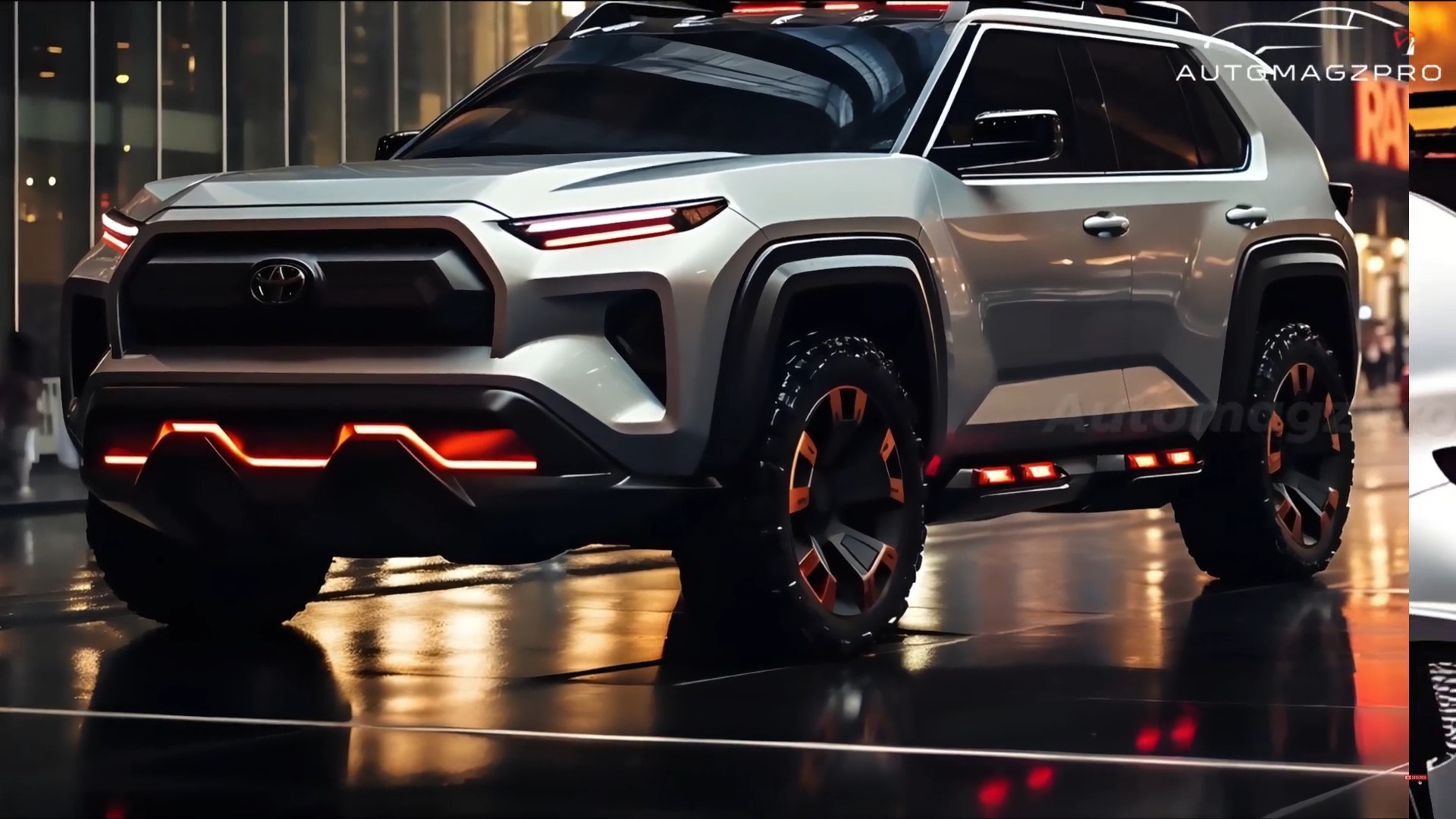

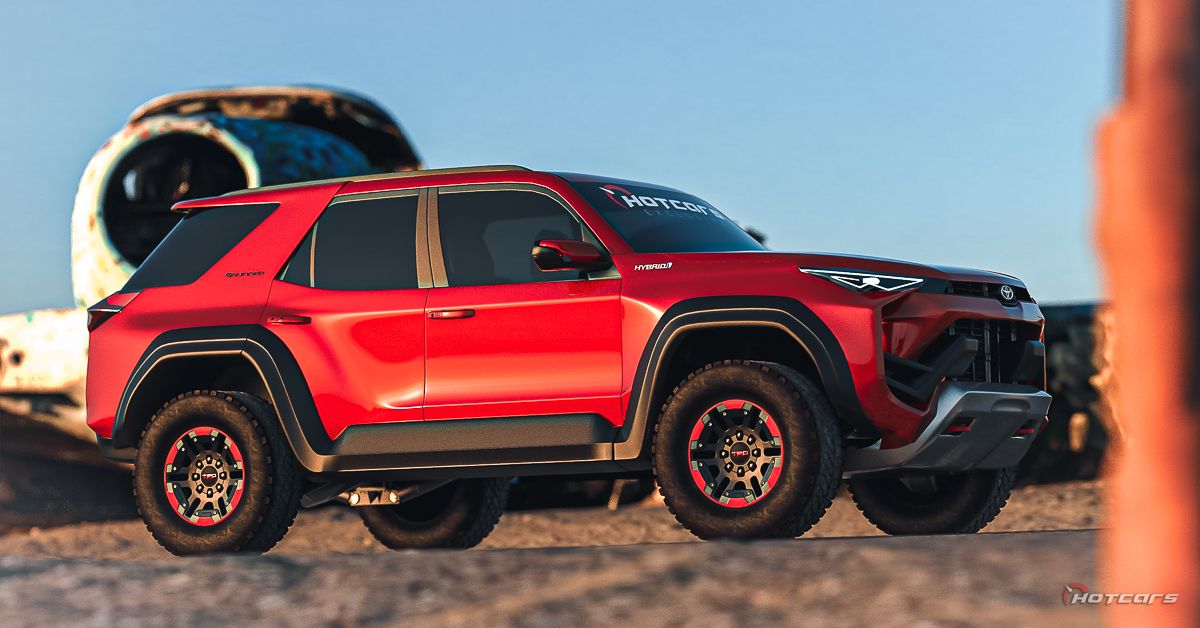
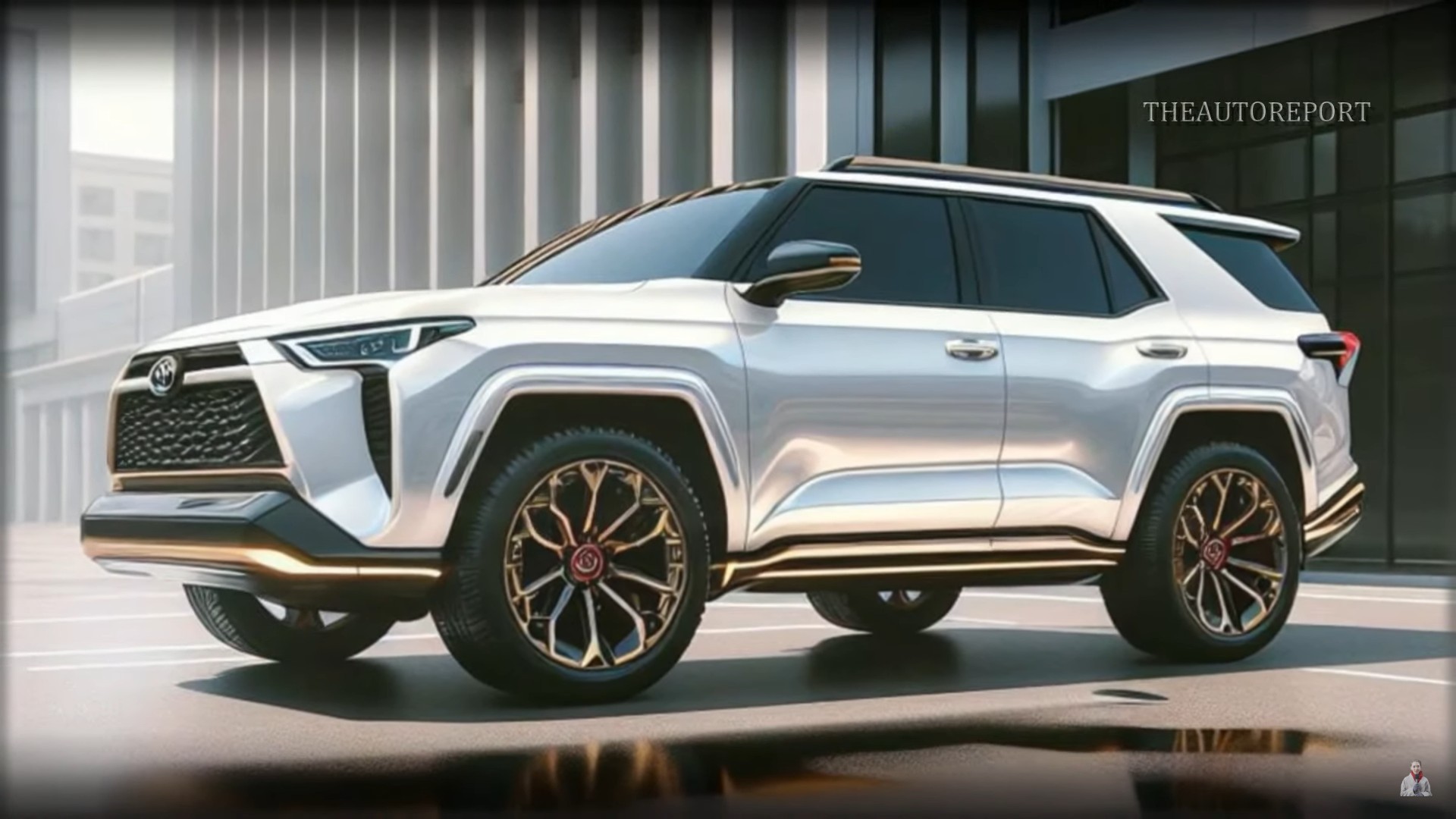
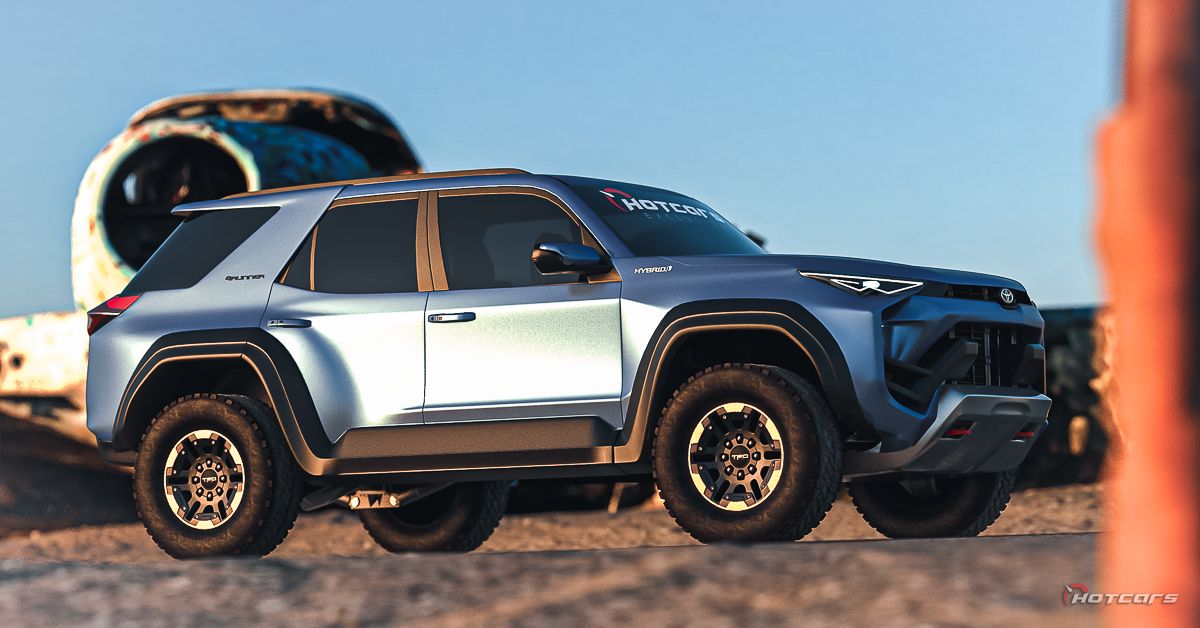

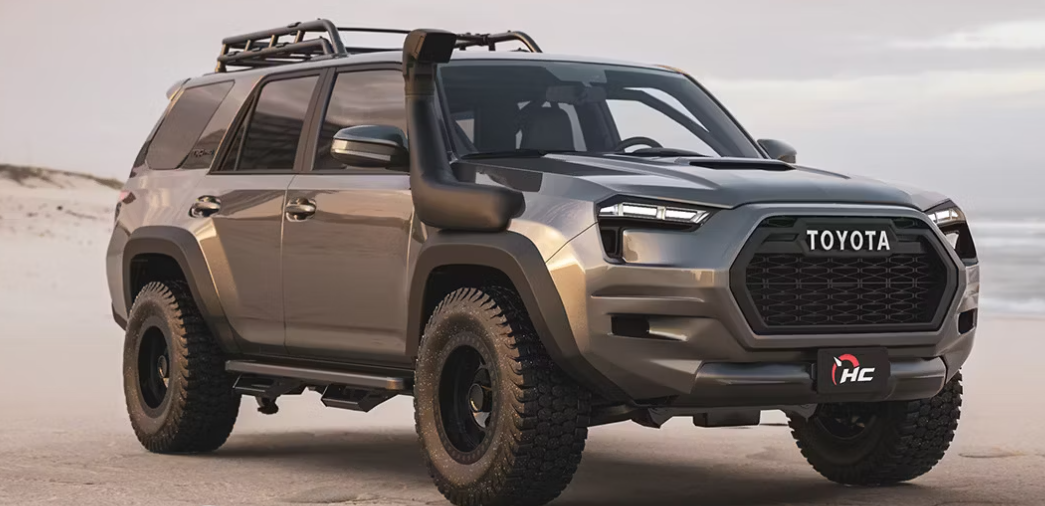

Closure
Thus, we hope this article has provided valuable insights into The 4Runner’s Electrifying Evolution: A Look at the Potential 2025 Hybrid. We thank you for taking the time to read this article. See you in our next article!